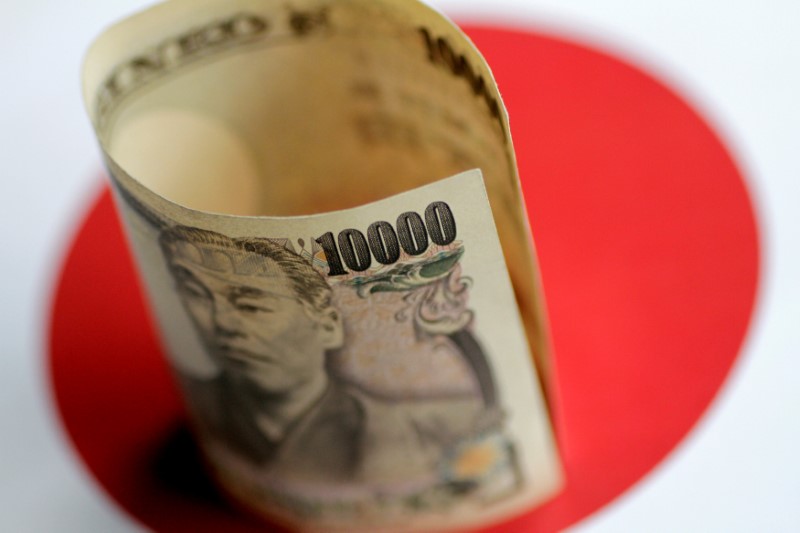By Chris Gallagher and Yoshifumi Takemoto
TOKYO (Reuters) - Japan will look into offering cash payouts to households as part of a stimulus package that could be worth more than $276 billion to combat the widening fallout from the coronavirus outbreak, joining efforts across the world to roll out huge fiscal support to fend of recession risks.
Economy Minister Yasutoshi Nishimura said the stimulus package, likely to be compiled by the government in April, will be bold enough to fend off a crisis he described as potentially more serious than when the collapse of Lehman Brothers in 2008 jolted financial markets.
"We'd like to look into various possibilities including on the size of any cash payouts," Nishimura told reporters after a cabinet meeting on Thursday, though he could not say at this stage what the size of the package would be.
The Sankei newspaper reported on Thursday Japan's ruling coalition was considering an economic package worth more than 30 trillion yen ($276 billion) to deal with the virus fallout.
That would far exceed the 26-trillion-yen stimulus package the government compiled in December last year to ease the impact from the U.S.-China trade war on the export-reliant economy.
"It's a crisis situation now, so the government will likely use as much money as needed," a senior government official told Reuters.
A roll-back of Japan's 10% sales tax, proposed by some ruling party lawmakers, is a less likely option because of the time it will take to notify the public and get retailers ready for the new tax rate, two other government officials said.
The officials spoke on condition of anonymity as they were not authorized to speak publicly.
Finance minister Taro Aso said on Thursday tax cuts could be included in the package, but that rolling back the sales tax was unlikely. He also told reporters that Japan must be mindful of its huge public debt when compiling a stimulus package, as big spending could force it to issue more debt.
The virus epidemic has hit Japan's economy, already reeling from last year's sales tax hike and soft global demand, heightening the chance of a recession.
The Bank of Japan's decision to loosen monetary policy at an unscheduled policy meeting on Monday did little to turn around market sentiment, soured by fears over the virus fallout.
A BOJ policymaker had warned of the need to brace for recession risks at a January rate review - held before the epidemic spread widely in the country, though other board members fretted over the cost of ramping up an already huge stimulus.
The BOJ on Thursday offered to buy 1 trillion yen of Japanese government bonds (JGB) in an unscheduled operation, as global bond yields surge on fire-sales by investors seeking to raise cash and reduce risk.
Given the BOJ's depleted ammunition, the onus is now on fiscal policy to mitigate the blow from the epidemic that has cooled consumption through school shutdowns, travel restrictions and event cancellations, analysts say.
As of Wednesday morning, Japan had 29 deaths and 868 coronavirus cases, excluding those from a cruise ship that was quarantined near Tokyo last month and returnees on chartered flights from China, a tally by public broadcaster NHK showed.
